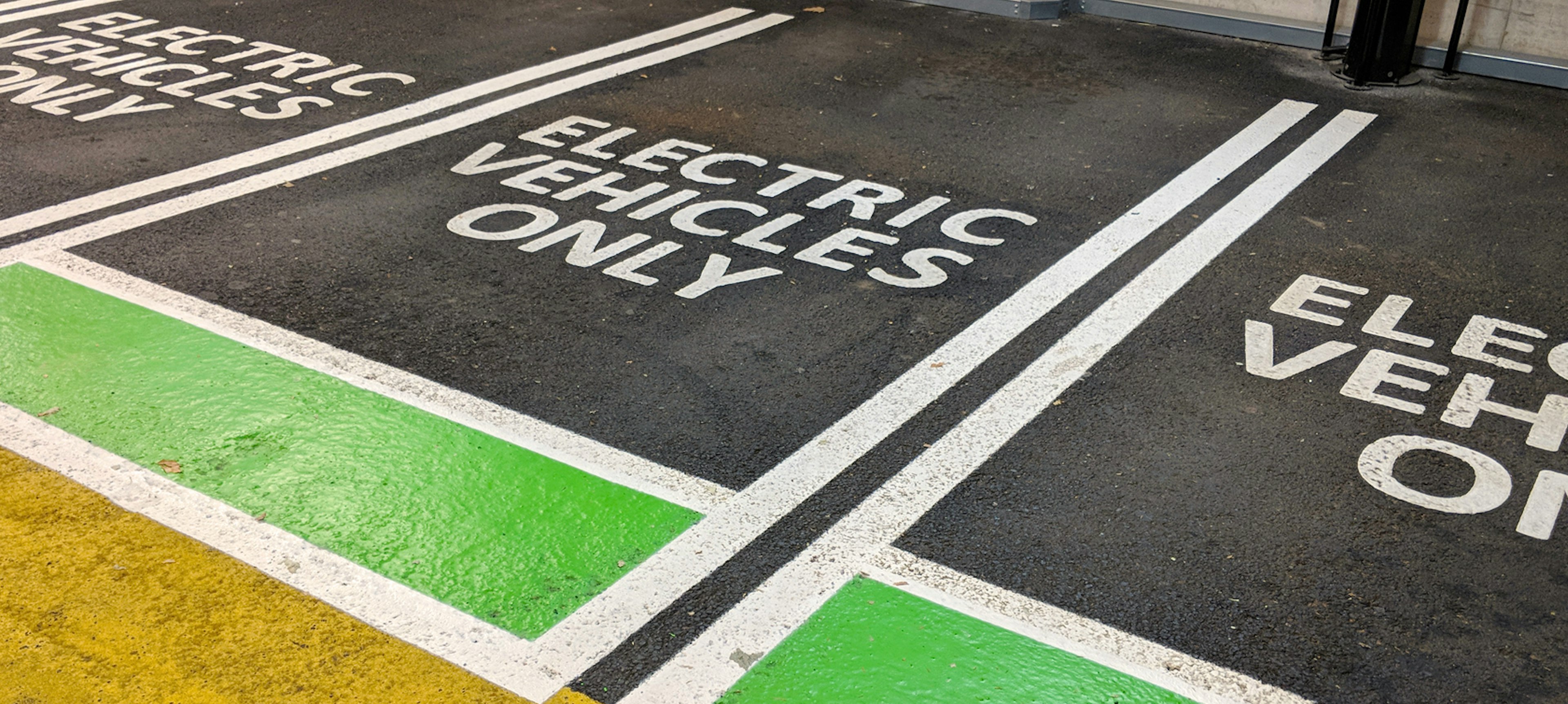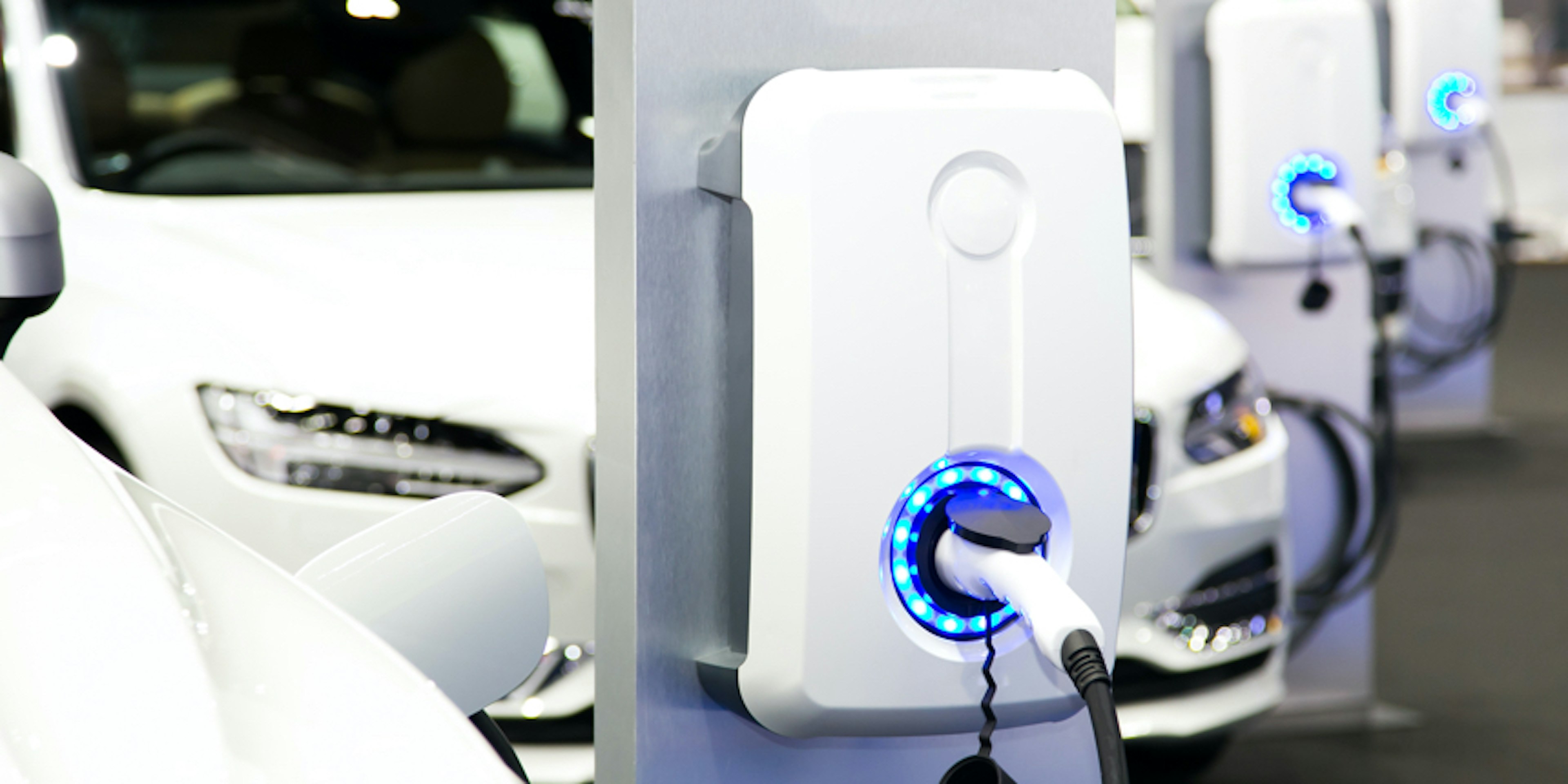The global electric vehicle market continues to grow, with over 20 million EVs sold worldwide in 2025 — a roughly 20% increase year over year. China dominates the market, while U.S. automakers have entered a phase of "EV realism" with many pivoting toward hybrids and scaling back ambitious all-electric timelines following the expiration of federal tax credits in late 2025. Battery technology advances continue to bring down costs and extend range.
With all of this in mind, is it a good time to deploy EVs in your fleet?
EVs vs. internal combustion engine (ICE) vehicles.
According to the US Department of Energy’s Office of Energy Efficiency and Renewable Energy, “EVs convert over 77% of the electrical energy from the grid to power at the wheels. Conventional gasoline vehicles only convert about 12%-30% of the energy stored in gasoline to power at the wheels.” Clearly, EVs are the hands-down winners when it comes to energy efficiency.
EVs made up 7.8% of the U.S. vehicle market in 2025, and the price difference between them and ICE vehicles continues to narrow while the average battery range increases. Is it time to replace some of your conventional vehicles with EVs? For the right answer, you need to look at the big picture.
The total cost of ownership for EVs is falling.
It has taken a while for EVs to reach price parity with ICE vehicles, but you no longer have to pay a huge premium for a quality EV. The sticker-price gap has narrowed dramatically — from around 50% in 2021 to roughly 12% by late 2024, according to data from Jato Dynamics. Manufacturers like Hyundai, Chevrolet, Tesla, Ford, and Toyota have all slashed prices on their EV lineups, with Hyundai cutting nearly $10,000 off its 2026 IONIQ 5 and models like the Chevy Equinox EV and Nissan LEAF now starting around $30,000–$35,000.
Even though the federal $7,500 EV tax credit expired in October 2025, EVs remain cheaper to own over time. A 2025 analysis from Atlas Public Policy found that four out of five of the most popular EVs beat their gasoline counterparts on total cost of ownership over seven years, with savings driven by electricity costing 40–65% less per mile than gasoline and roughly half the maintenance expenses. The IEA's Global EV Outlook 2025 confirms the trend, noting that battery pack prices fell more than 25% in 2024 alone, pushing EVs closer to outright purchase-price parity as well. (Plus, modern EV batteries are proving exceptionally durable. Recent studies analyzing over 22,700 electric vehicles show an average battery degradation rate of just 2.3% per year.
Why EVs are a more affordable option in the long run
- Charging an EV costs ten times less than gassing up⎯the cost is further reduced when you charge at non-peak hours.
- An EV is more reliable and cheaper to maintain since it has only 20 or so moving parts in the powertrain whereas an ICE vehicle has an average of 2000+.
- EV powertrains can last 500,000 miles or more⎯that’s at least twice as long as an ICE powertrain.
- The upfront purchase price for EVs is steadily dropping to that of ICE vehicles largely due to the falling cost of lithium-ion batteries (and the rising cost of ICE vehicles).
The economics of fleet electrification in 2026
While federal EV tax credits ended in September 2025, the business case for fleet electrification has strengthened due to:
Dramatically Lower Battery Costs: Battery pack prices have fallen to approximately $108 per kWh in 2025, down 40% from just five years ago. This trend is expected to continue, bringing EVs closer to price parity with internal combustion vehicles.
State and Local Incentives: Many states and municipalities continue to offer substantial incentives for commercial fleet electrification, including: • State-level EV rebates and tax credits • Utility company incentives for charging infrastructure • Local government fleet programs • Low-interest financing programs
Improved Total Cost of Ownership: Even without federal incentives, fleet EVs offer compelling economics through fuel savings, reduced maintenance, and longer vehicle lifespans.
For a detailed analysis of available incentives in your area, visit the U.S. Department of Energy's Alternative Fuels Data Center.
EVs can boost your image with customers and employees too
EVs showcase the latest vehicle technology and release zero emissions. These factors help you look good to customers and employees who are drawn to forward-thinking, tech-savvy, environmentally responsible companies. At the same time, building a more energy-efficient fleet with EVs helps you meet your company’s goals for reducing waste.
There's no shortage of EV options
While some automakers are pulling back some on their initial EV plans, there remains considerable options for fleets to consider. Here's a small sampling of recent activity:
GM Silverado EV: The Silverado EV offers three battery options with range between roughly 455–793 km (about 283–493 miles), with the largest pack at 205 kWh.
Hyundai/Kia lineup: The Ioniq 5 offers up to approximately 310 miles with an upgraded battery, and the broader Ioniq and Kia EV lineup remains strong for 2026.
Mercedes EQS SUV: Confirmed at roughly 390 miles of range for 2026.
Toyota bZ: Toyota renamed the bZ4X to just "bZ" and upgraded it with a new 74.7-kWh battery, offering up to 314 miles for the front-wheel-drive model.
Rivian R1T and R1S: Offering 400+ mile range options.
Think you’re ready to add EVs to your fleet? Think Mike Albert Fleet Solutions.
Whether you’re part of a private company or a municipality, Mike Albert will help you procure, finance and manage the right EVs for your organization. We provide expert consultation on everything you need to know about EVs and electric vehicle supply equipment (i.e., charging stations) including:
- Features and benefits/pros and cons of various EV models and equipment
- Supply chain challenges of certain EV models
- New EV vehicles on the horizon to consider
We also offer you a variety of financing options. Once you select your EVs, we match you with the financing that best meets your business objectives. Then we stack all the applicable federal, state and local tax credits and incentives into your financing for maximum savings.
Follow this link to learn more about fleet electrification.
Skills covered in the class
Operational Efficiency
Fleet Electrification
Vehicle Life Cycle Analysis
Vehicle Specification
Did you enjoy this class?
Share it with your organization and colleagues.



